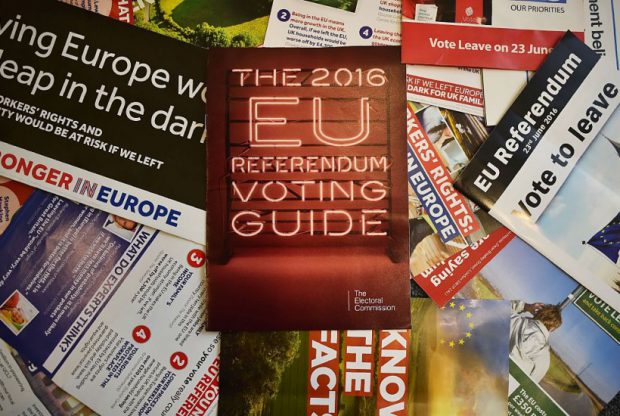The decision to extend the deadline for voters to register in the EU referendum hasn’t gone down well with everyone. As Isabel Hardman has said, whether it’s a cock-up or a conspiracy, ‘Leave’ won’t like the extension which came about after the government’s website went down on Tuesday evening. But are they right to feel aggrieved?

In terms of how many voters actually registered yesterday, the numbers are certainly significant: some 240,000 people, who would otherwise not have been able to vote on June 23rd, signed up. By far the largest chunk of these fell into the 25-to-34 years of age category (80,000). Whilst the third largest group of voters to register yesterday were those aged 35 to 44 (51,000). As we’ve heard a lot from the ‘Leave’ campaign over the last day or so, this is likely to prove favourable to ‘Remain’ but not by as much as some have suggested. According to a YouGov poll, 41 per cent of people between the ages of 25 and 49 were in favour of staying in the EU. But whilst the number of those in this group backing Brexit was somewhat lower, at 29 per cent, around a fifth (21 per cent) still hadn’t made up their minds. Given that not all of these voters who have signed on will show up to cast their votes on June 23rd, the gap between those backing Brexit and those in favour of staying in the EU could be narrower, particularly given how recent polling has shown how ‘Leave’ has gained support.

What’s more, in the Leave campaign’s favour, a significant group of people in the age range who are more likely to back Brexit also signed up during the extended deadline. 35,000 people aged 45 to 54 registered yesterday, as did 14,000 aged between 55 to 64 and 5,000 aged 65 to 74. And almost 2,000 over 75’s signed up. If you tally these figures together, you get 56,000 people who are, broadly speaking likely to back Brexit. The same YouGov poll carried out in March showed that amongst 50-64 year olds, 45 per cent of people compared to 36 per cent favoured Britain leaving the EU. Whilst for those aged 65 or older, the margin was even bigger: 52 would vote for Brexit, with 32 per cent wanting to stay in the EU. What’s more, people in those age categories are between 17 and 18 per cent more likely to vote. Based on these numbers, and once you take into account actual turnout, the gap between those backing Brexit and those in favour of staying in the EU isn’t as much as has been suggested. Maybe ‘Leave’ shouldn’t be so angry after all.







Comments